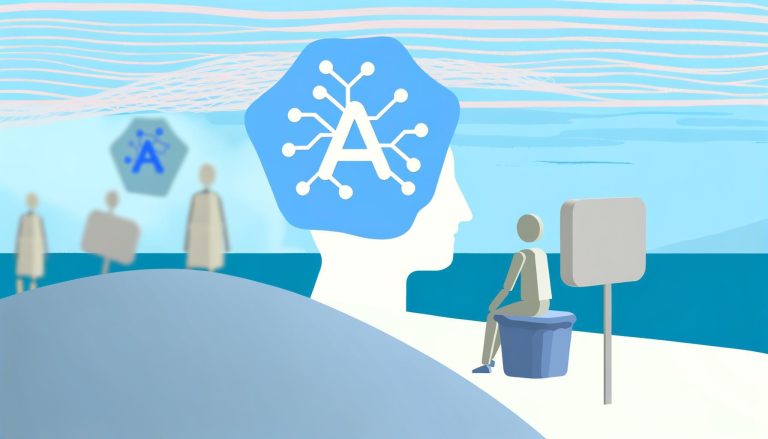Orthorexia Nervosa, an eating disorder characterized by an obsession with eating only healthy foods, has become increasingly prevalent among athletes. The rigorous demands of athletic performance often lead individuals to extreme dietary restrictions, which can adversely impact their overall well-being. With advancements in technology, Artificial Intelligence (AI) is emerging as a promising tool in the treatment and management of Orthorexia Nervosa. This article explores the impact of AI on treating this condition in athletes, shedding light on the benefits, practical applications, and future possibilities.
Understanding Orthorexia Nervosa in Athletes
What is Orthorexia Nervosa?
Orthorexia Nervosa (ON) is not officially recognized as a distinct eating disorder in the DSM-5, but it is gaining attention due to its increasing prevalence. ON involves an unhealthy obsession with eating foods perceived as healthy or pure, leading to restrictive dietary practices that can compromise physical and mental health.
Prevalence Among Athletes
Athletes, particularly those in sports that emphasize weight control or aesthetic appeal, are at a heightened risk of developing Orthorexia Nervosa. The pressure to optimize performance and adhere to strict dietary guidelines can foster an environment where unhealthy eating behaviors flourish.
The Role of AI in Treating Orthorexia Nervosa
AI-Powered Diagnostic Tools
AI technologies can support early detection and diagnosis of Orthorexia Nervosa through:
- Pattern recognition: Machine learning algorithms can analyze an individual’s eating patterns and behaviors, identifying signs of disordered eating.
- Natural language processing: AI can assess text inputs from food diaries and social media to detect obsessive thoughts related to healthy eating.
Personalized Treatment Plans
AI can provide highly personalized treatment plans by:
- Analyzing athlete data: AI systems can process various data points, such as dietary intake, exercise routines, and psychological indicators, tailoring interventions to the individual’s needs.
- Adaptive algorithms: Machine learning models can continually update and modify treatment plans based on progress and feedback.
Virtual Therapy and Support
AI-driven platforms offer various forms of virtual support, including:
- Chatbots: AI chatbots can provide immediate emotional support, coping strategies, and nutrition advice, mimicking human interaction.
- Telehealth integration: Virtual therapy sessions with dietitians, psychologists, and other healthcare providers can be facilitated through AI-enabled platforms.
Monitoring and Feedback
Continuous monitoring and real-time feedback are critical for managing Orthorexia Nervosa in athletes. AI tools can assist in:
- Wearable technology: Devices that track physiological and behavioral data can relay information to AI systems for analysis and feedback.
- App-based tracking: Smartphones and apps can track mood, dietary intake, and exercise, providing daily feedback to help athletes stay on track.
Data Privacy and Ethical Considerations
The use of AI in treating Orthorexia Nervosa must account for ethical considerations, including:
- Data privacy: Ensuring that individuals’ data is secure and confidential is of paramount importance.
- Bias reduction: AI systems must be free from biases that could negatively impact treatment outcomes.
Benefits and Practical Tips for Using AI in Treatment
Improved Accessibility
AI technologies can make treatment more accessible by providing round-the-clock support and reducing the need for in-person consultations. This is particularly beneficial for athletes with demanding schedules.
Consistency in Monitoring
Regular, consistent monitoring of dietary and behavioral patterns helps in identifying early signs of relapse, ensuring timely interventions.
Customized Interventions
Athletes often have unique dietary and training needs. AI can help create and adjust personalized interventions that are specific to these requirements, maximizing both health and performance.
Ease of Use
User-friendly AI tools, such as apps and wearable tech, can seamlessly integrate into athletes’ daily routines, ensuring that they receive the support needed without added stress.
Continuous Learning and Adaptation
AI systems continuously learn from data inputs, allowing them to adapt treatment strategies based on the effectiveness of past approaches, improving overall care quality.
Practical Tips for Maximizing AI Tools
- Select reliable platforms: Choose AI tools from reputable providers known for their accuracy and ethical standards.
- Regularly update data: Ensure that the data inputted into AI systems is accurate and up-to-date for the best recommendations and insights.
- Involve healthcare professionals: While AI can provide substantial support, collaborating with trained professionals ensures a comprehensive approach to treatment.
Future Prospects
The future of AI in treating Orthorexia Nervosa in athletes holds great promise, with advancements in technology likely to provide more sophisticated and individualized care solutions. Research is ongoing to improve the algorithms and develop new applications that can further enhance treatment outcomes.
Conclusion
The integration of AI into the treatment of Orthorexia Nervosa offers a revolutionary approach to managing this delicate condition, especially among athletes. From early diagnosis to personalized treatment plans and continuous monitoring, AI presents numerous benefits that can transform how we address Orthorexia Nervosa. As technology continues to advance, it is essential for researchers, healthcare providers, and patients to embrace these innovations and collaboratively work towards a future where mental health is more effectively managed and sustained.





